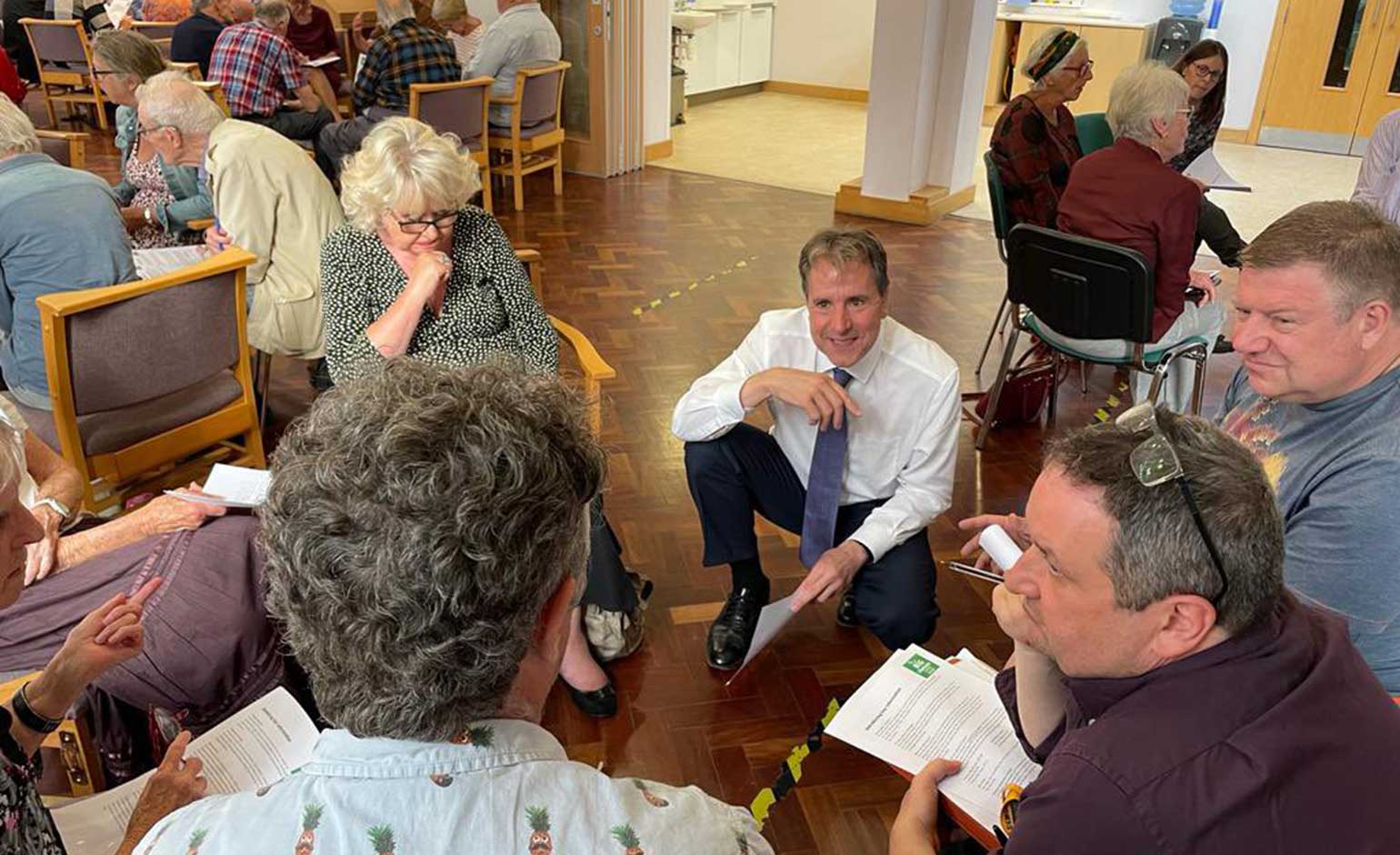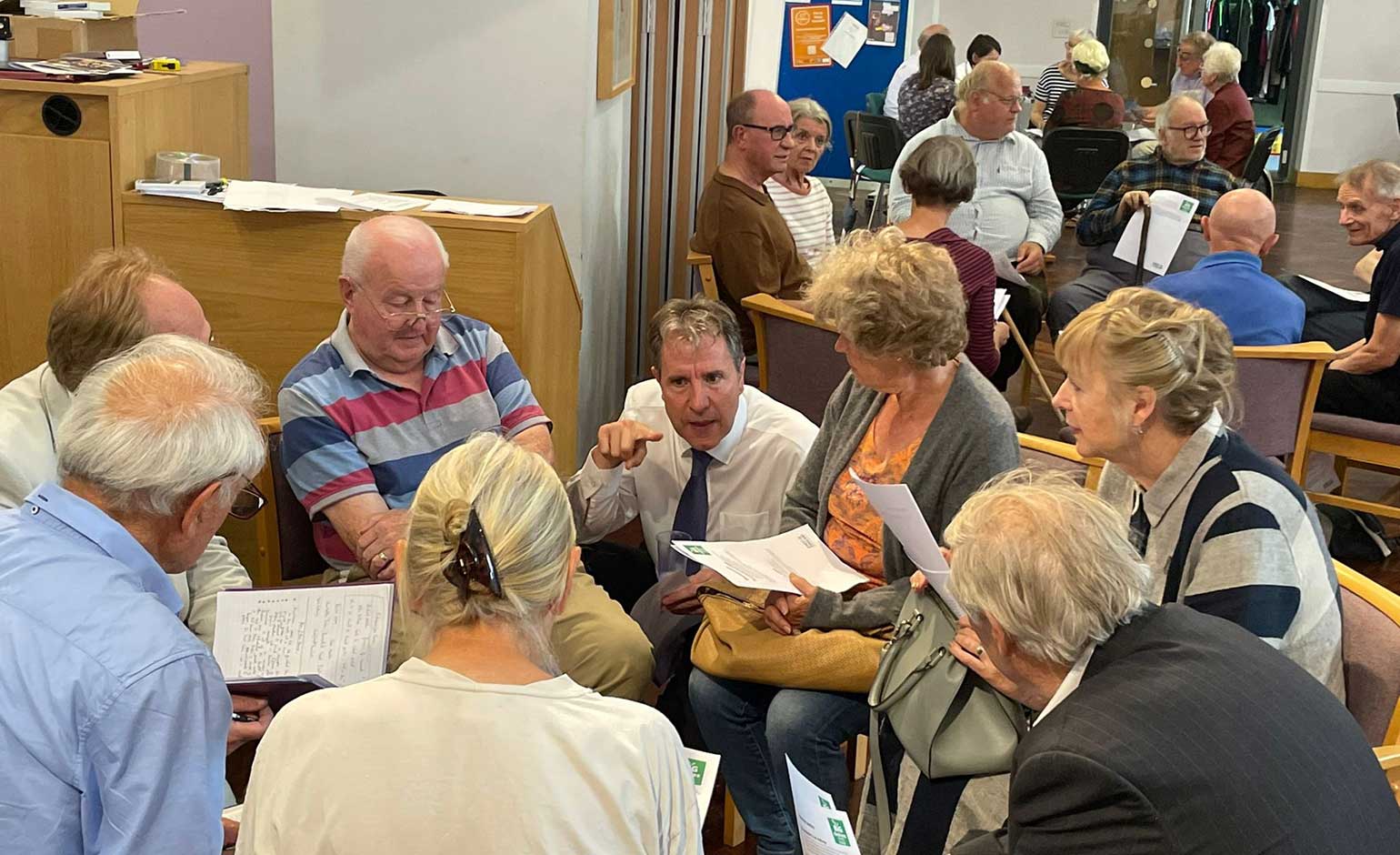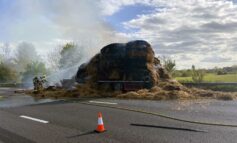West of England Metro Mayor Dan Norris has praised local residents for taking the time to share their ideas on buses at a “Big Choices on Buses” meeting in Bath.

Mr Norris at the bus meeting in Bath | Photo © WECA
Around 100 people attended the meeting, which was held on 21st July at Southdown Methodist Church, where discussions were held on the challenges faced by those using local bus services.
Residents heard about the critical shortages of bus drivers with over 100 vacancies across the region, spiralling bus inflation and the end of Government covid funding looming in October.
The bulk of bus services in and around Bath are commercial, run by First Bus, Stagecoach, Faresaver and other providers.
Around 60 bus services across the West of England region are currently taxpayer subsidised.
In Greater Manchester, Mayor Andy Burnham gets £67 per person per year from local councils to fund transport.

Photo © WECA
However, here in the West of England, Bath & North East Somerset Council, Bristol City Council and South Gloucestershire Council contribute just over £20 per person.
This funding gap means the West of England Metro Mayor has much less money to invest in services.
As well as hearing from Dan Norris, residents and local councillors worked in groups to discuss potential solutions to challenges and the trade-offs and compromises they would be willing to make.
Most attendees favoured reliability over frequency of services and many suggestions on new routes were made.
The concept of shuttle minibuses was popular, transporting people from more rural places around Bath, into the city, to Keynsham, Bristol or to main roads to catch bigger buses.
The big difference that term-time made was noted, with suggestions that the University of Bath and Bath Spa University should also contribute to local buses.
Metro Mayor Dan Norris said: “There are very real challenges on the buses right now – not enough drivers, fewer fare-paying passengers and a looming financial cliff edge when government support ends in October.
“The truth is we can’t have a perfect service and we need to be honest about the trade-offs required and some big choices need to be made.
“Luckily local people have some great suggestions. I sensed a real appetite for on demand mini buses in more rural areas (which would free up drivers).
“Thank you for the suggestions on different routes and how to price tickets. I was really encouraged by how people came with an open mind.”
In April 2023, new money will become available for buses after Mr Norris secured the second highest funding award for buses nationwide.



